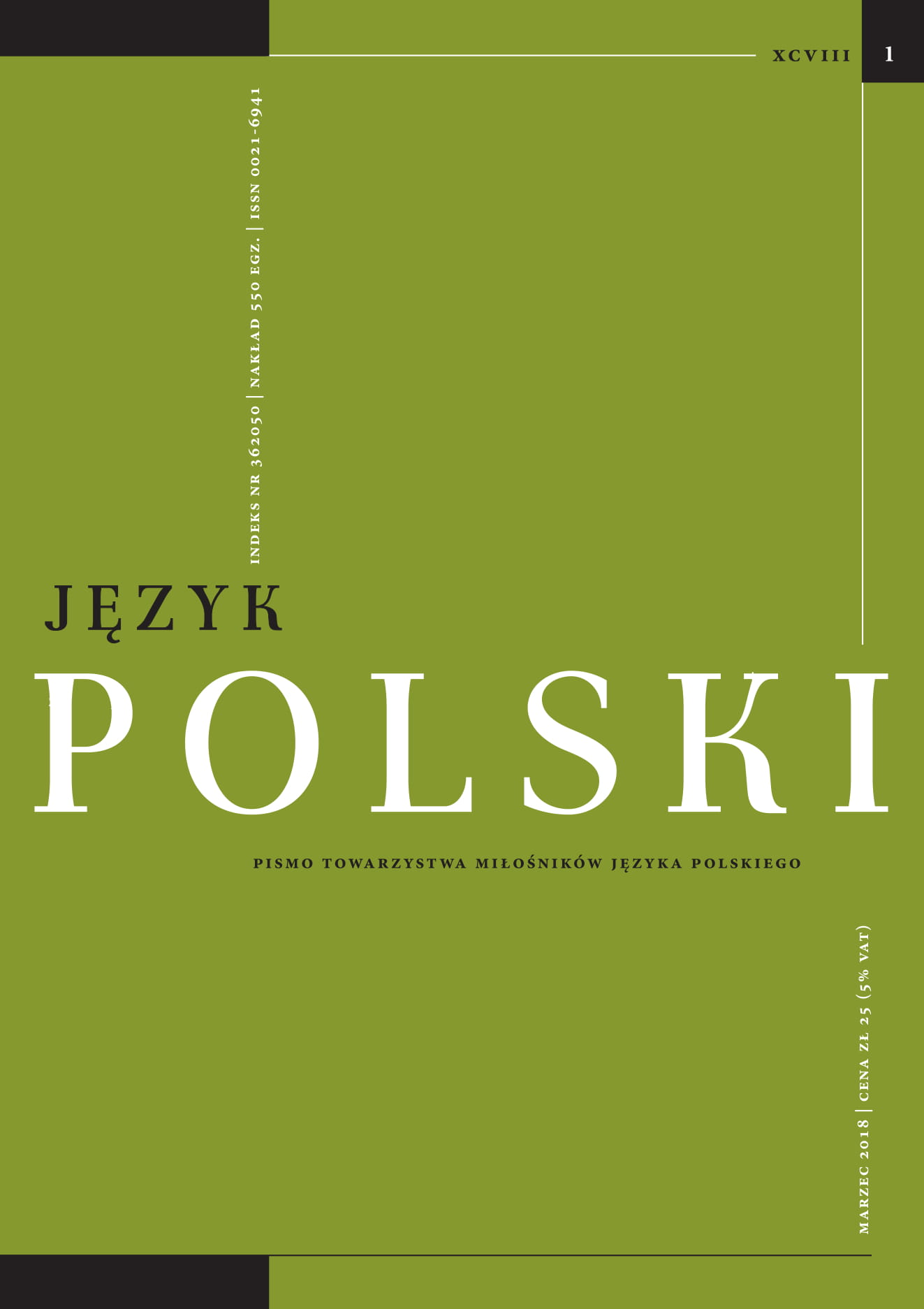Pragmatyczne uwarunkowania derywatów tautologicznych w klasie dawnych nazw zwierząt
The pragmatic determinant of tautological derivatives in the early names of animals
Author(s): Krzysztof WaśkowskiSubject(s): Theoretical Linguistics, Applied Linguistics
Published by: Towarzystwo Miłośników Języka Polskiego
Keywords: tautology; derivative; pragmatics; animalistic; lexis
Summary/Abstract: The names of animals, selected from “Słownik staropolski” (“Dictionary of Old Polish”) and “Słownik polszczyzny XVI wieku” (“Dictionary of the 16th Century Polish Language”), were examined drawing on text authentication and lexicography and recognised as tautological derivatives which, in other words, are lexical units synonymous with their root words. The article aimed to demonstrate the pragmatic base for the development of the analysed set of words, assuming that the pragmatic function of word formation, defined by Iwona Kaproń-Charzyńska as “the quasi unboundedness of human activity”, is responsible for their naming. The article examines the glossal nature of Old Polish word-formative animalistic tautologies or to be more exact, the ease of translating old texts, along with the state of the old word-formative system, characterised by its incomplete structure. It has been also proven that most of the units of the studied set are occasional formations, dependent on the author’s invention and the style of the text which are, at the same time, a manifestation of certain expression and the creativity of language users, the evidence of reaction to various communication and artistic needs (the necessity of keeping the metre of a verse/poem, the need for rhyming verses and the attempt to eliminate the polysemy of a root).
Journal: Język Polski
- Issue Year: 2018
- Issue No: 1
- Page Range: 87-99
- Page Count: 13
- Language: Polish

